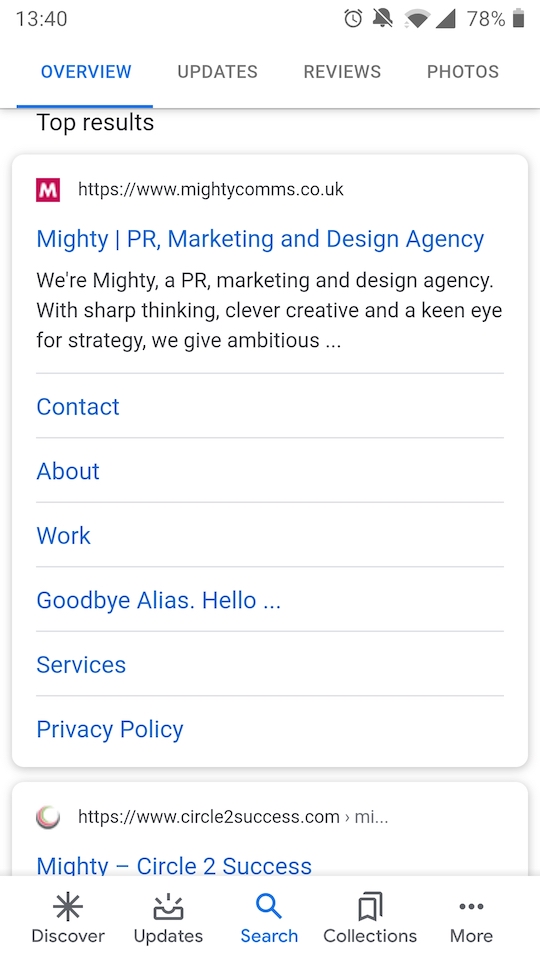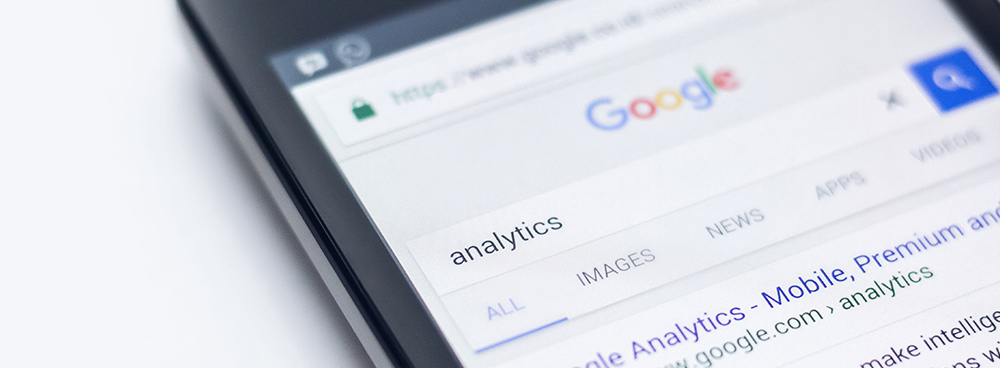News
Changes to Google’s SERPs Put the Focus Back On Ads
Last year, Google rolled out a new look and feel for its search engine result pages (or SERPs) on mobiles, and is starting to do the same on desktop. However, these changes have much bigger implications for your company and the people searching for it.
When you search for something via Google on your phone, you might have noticed that you now see the web address first before the page title, and that the favicon for the site sits to the left of that web address, like so:

That same change has been carried across to the desktop version of the site – in theory, to put brands up front and help users better recognise where the information they’re looking for is coming from.
However, the search giant has also changed the way that ads are being displayed in the feed. They now look almost identical to organic search results, only that the favicon has been replaced with a simple ‘Ad’:

On the one hand, this is good news for businesses that rely heavily on PPC. Traditionally, ads often get less clickthroughs due to a lack of user trust, even if the advert being served is completely relevant. If it’s more difficult to see the difference, it means that those ads are likely to see a lot more traffic, so in particular, e-commerce retailers with a large PPC strategy like ASOS, John Lewis or Amazon are likely to see an even bigger boost in the number of people visiting their site. However, advertisers will need to ensure that their keyword strategy is up to date so they aren’t unnecessarily wasting spend.
The changes to Google’s SERPs also carry implications for SEO. Google have been steadily increasing the amount of search ads that end up on the front page, and if ads are looking even more like organic results, then Google quickly ends up becoming even more of a pay-to-play space, meaning that smaller brands and challengers won’t be able to get a look in. It also means that with more ads potentially dotted throughout a page, the number of quality organic results on a page would go down, so your SEO strategy would need a bit of a rethink.
Due to a considerable backlash, Google have clarified that they’ll keep experimenting with the favicon placement on desktop, but without necessarily mentioning what will happen to the way ads are displayed. So there’s no need to panic, but if you’re in a competitive market and haven’t considered a PPC strategy alongside your SEO efforts, it’s more important than ever to start putting a plan together.



